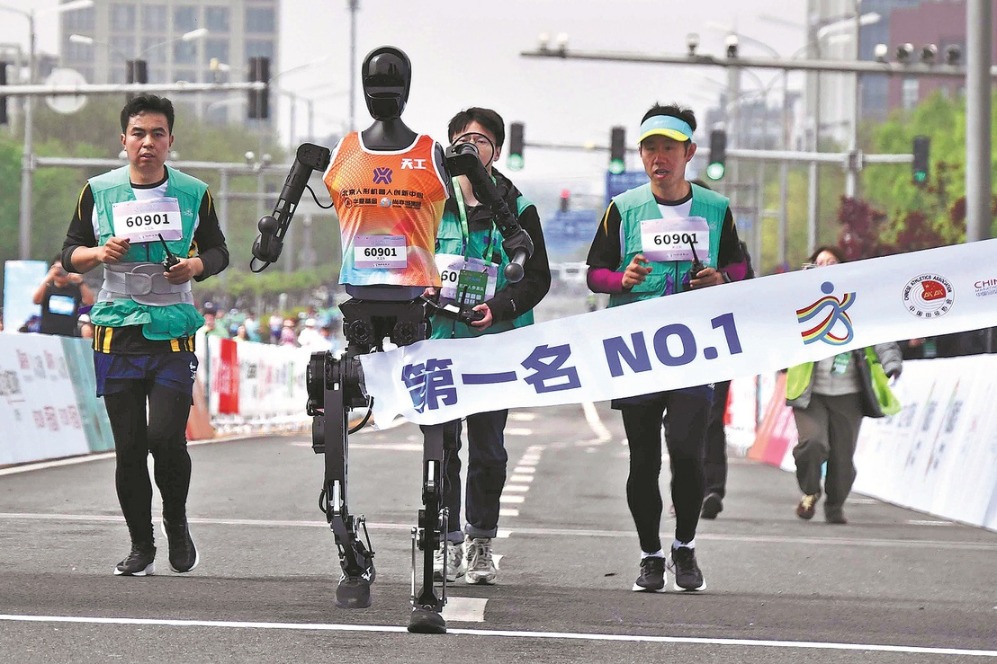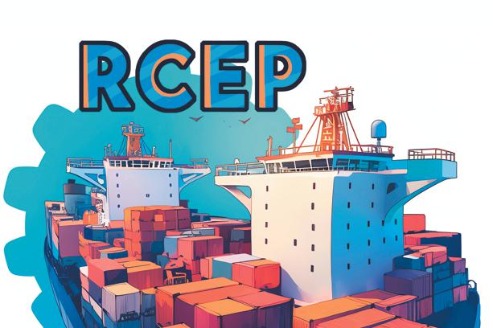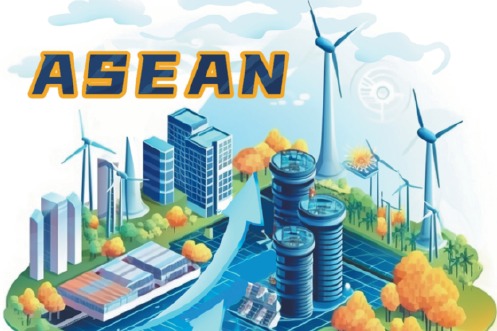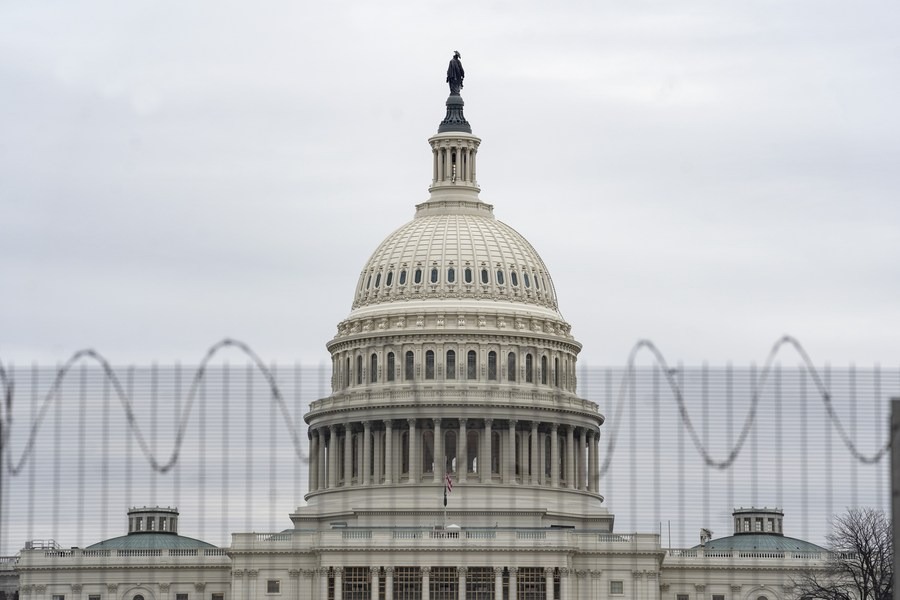Green empowerment

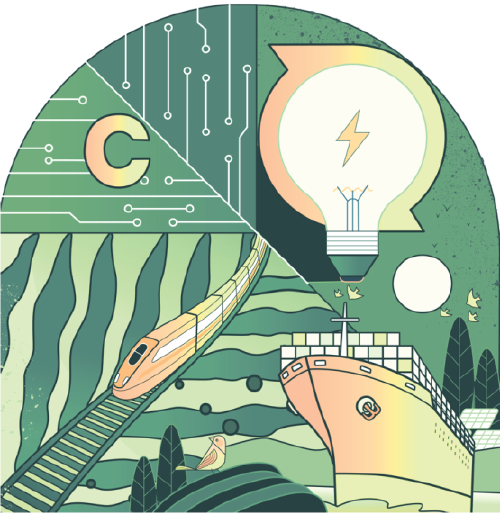
Proficiency China has demonstrated in its fight against the novel coronavirus can be leveraged to lead the way in addressing the climate challenge
It is said that there are decades where nothing happens, and there are weeks where decades happen.
One important lesson from history is that sometimes development is very slow until it becomes extremely fast. I believe that is where we now stand on the environment. After a long period of sluggish progress, in the year of COVID-19 decades have happened. When President Xi Jinping announced at the United Nations General Assembly in September that China will strive to peak carbon dioxide emissions before 2030 and achieve carbon neutrality before 2060, a green shock wave passed through the international system.
We are a much bolder world on our way out of the pandemic. Within a month after China's announcement, President Moon Jae-in of the Republic of Korea and Prime Minister Yoshihide Suga of Japan announced carbon neutral goals for their countries. Joe Biden was elected president of the United States on a brave climate program, promising $2 trillion in green investment. In the European Union, member countries are working on the Green New Deal, an amazing ambition to put green development center stage in European integration. In India, Prime Minister Narendra Modi is scrapping one planned coal plant after another, and taking his nation into the global lead as a solar contributor.
Green is gold. In order to help establish a global low carbon economy and a beautiful China, China should embrace this concept, first launched by President Xi when he was Party chief in Zhejiang province. Fighting against climate change and protecting nature is not a cost to humanity, but a great opportunity for creating jobs, bringing prosperity and improving living conditions. It is a win-win-win policy, good for the environment, the economy and jobs, and social lives. Interestingly, Biden launched his environment and climate election program with a focus on all the benefits for US citizens. The US and China are on the same wavelength: Climate change is an opportunity to embrace as well as a problem to solve.
Indeed, as Chinese State Councilor and Foreign Minister Wang Yi said in a video meeting on Dec 18, China will not only firmly implement its Paris Agreement commitments, but also seek to work together with the US to jointly contribute to the global response to climate change.
What drives the global environment agenda today is the political economy, not UN climate talks. The price of solar energy has decreased 90 percent in a decade, the price of wind 60 percent and electric batteries 85 percent. China is an immensely innovative nation. The sheer size of the Chinese economy makes every innovation cheaper, because it can produce for so many customers. Also globally, we see private business running ahead of politicians in many other countries. It's all about innovation and scale.
Western companies have made strong commitments to the Green Agenda. Microsoft promises to go carbon neutral by 2030, to even compensate for all emissions in the company's history. Apple has made similar promises on carbon neutrality and Amazon will buy 100,000 electric utility vehicles to drive that market. Ikea has an amazing strategy for the circular economy. In China, there is the same trend. Companies such as Tencent, Alibaba and Huawei are rapidly moving into the Green Agenda. This needs to be accelerated and expanded.
Time is up for the "pollute first, clean up later" development model.
China's response to the novel coronavirus outbreak has been the most effective in the world. Other East Asian nations including the ROK, Vietnam and Singapore have delivered similar impressive performances.
The same competence China has shown in its fight against COVID-19 can be leveraged to address the greatest challenge of the 21st century: protecting Mother Earth. The Ministry of Ecology and Environment has started to promote legislation to ensure China will peak its carbon emissions fast, setting targets for provinces, cities and businesses. It is a goal-oriented strategy focusing on accountability and measurement. Similarly the People's Bank of China is working on green standards for finance as well as guidelines for banks and financial institutions to disclose environment-related information. The low-carbon green strategy will have to be integrated in every aspect of the 14th Five-Year Plan (2021-25) whereby provinces, cities and businesses will be required to set their own targets. If China's emissions are to peak before 2030, front runner provinces and cities will need to peak fast.
For the vast majority of people in every country, going green is positive. It brings jobs, better social practices and less pollution. Still, some people will be left vulnerable during the transition. In China, the transition may be easier for Guangdong and Jiangsu provinces than for Shandong or Shanxi provinces, if only because of their different economic structures. The transformation may be easier for people in hightech cities such as Shenzhen than in the heavy industrial parts of northern China. The transition needs to be fair. Europe and North America are facing a mirror challenge. It may be helpful to exchange best practice.
Social fairness is vitally important because it will make the transition easier. The more people on board, the fewer obstacles and less pushback there will be. I was impressed when visiting Didi, the Chinese car-hailing company, when they told me they have programs for employing former coal workers. Such initiatives will ensure a fair and social transition.
Finally and most importantly, China should take upon itself to help lead the world. Through cooperation with the US, Europe and other countries, China can share its unique ideas and experience, such as the huge progress fighting against air pollution in cities, the desert greening endeavor in Northwestern China, the redlining system that offers a scientific approach to land conservation in densely populated regions. China can be a global green leader by showing the world that a green recovery from the pandemic is possible.
No one has the full answer as to what we should do. We would be wise to follow the advice given by former Chinese leader Deng Xiaoping: Cross the river by feeling the stones.
Led by that pragmatism we will in 2060 look back on a similar success of China protecting Mother Earth as we have seen in China lifting hundreds of millions out of poverty over the last decades.
The author is vice-chairman of the China Council for International Cooperation on Environment and Development. The author contributed this article to China Watch, a think tank powered by China Daily. The views do not necessarily reflect those of China Daily.





















